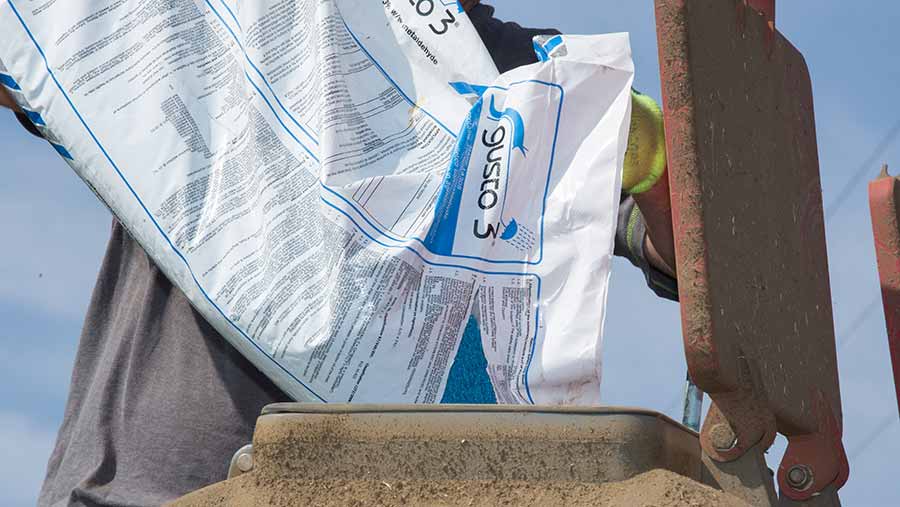Water firm appeals for sensible on-farm slug pellet use
 © Tim Scrivener
© Tim Scrivener Farmers are being encouraged to carefully manage the use of slug pellets to avoid polluting watercourses.
Yorkshire Water has asked farmers to follow best practice when applying slug pellets.
At this time of year, farmers are actively seeking to control slug infestations to prevent damage to crops as the wet weather arrives.
See also: Successful metaldehyde trial to be expanded next season
But the active ingredient metaldehyde can occasionally run off from farmland or flow from drains and find its way into watercourses.
Trials in some parts of the UK have shown 98.7% of metaldehyde contamination within rivers and streams comes via flowing field drains.
Although Yorkshire Water said this poses no danger to health or the environment, metaldehyde levels in rivers such as the Ouse and Derwent have occasionally breached EU drinking water standards, which operate a strict limit of 0.1mcg/litre in treated water.
Therefore, the company has teamed up with partners including Natural England and the NFU to encourage farmers to follow best practice when applying slug pellets this autumn.
Stewardship guidelines
Farmers are being encouraged to avoid applying slug pellets within 6m of a watercourse, and to only apply the minimum amount needed to avoid losses from drainage and run-off.
Yorkshire Water’s Andrew Walker said: “We are positively working with farmers on this issue, as we recognise the demands they face to meet food-production targets.
“So we are not saying to farmers to stop using slug pellets, but instead to ensure they are applied correctly and to consider alternative measures that have a lower water impact. This way, crops will continue to be protected from nuisance slugs without adversely affecting raw water supplies.
“We also want to raise awareness of the alternative ferric phosphate slug pellet, which trials in our catchments have shown are equally as effective as metaldehyde pellets.”
See also: How to calibrate your slug pellet spreader
Metaldehyde Stewardship Group
James Copeland, NFU environment and land use adviser, said: “Farmers recognise the need to use slug pellets responsibly and for several years, through the industry-led Metaldehyde Stewardship Group [MSG], have been promoting best-practice guidelines and exploring alternative methods of controlling slug numbers.
“The importance of ensuring correct application, avoiding sensitive areas adjoining watercourses and taking weather conditions into account is well understood and many farmers are also developing new approaches to slug control.
“This, for example, can involve changes to cultivation techniques that reduce the need for chemical control measures.”
Paul Arnold, Natural England’s Catchment Sensitive Farming co-ordinator, said it was important that farmers and contractors continue to think about whether fields were “at high risk of losing metaldehyde and consider ways of reducing the risk”.

